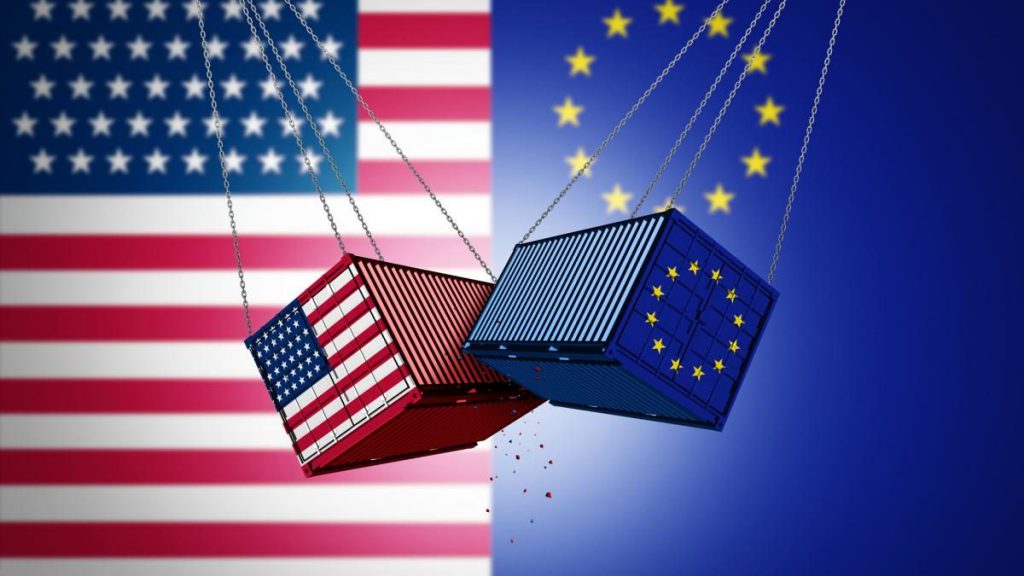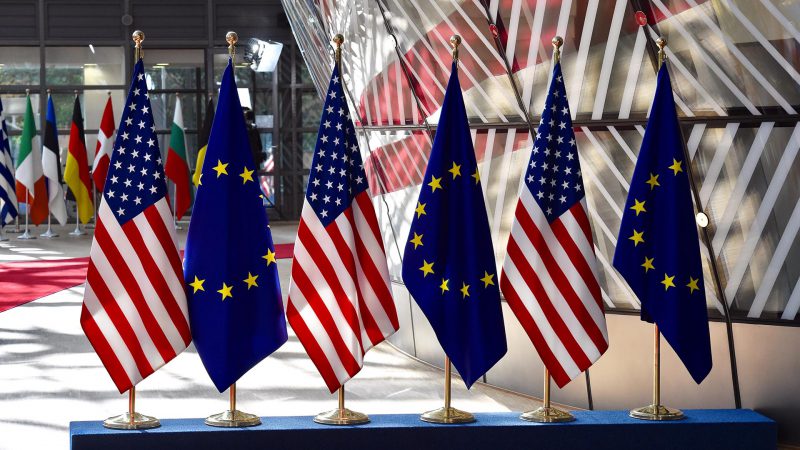A US-EU trade deal is being urgently pursued right now as Trump threatens a 50% steel tariff on all European goods by July 9. The US-EU trade deal negotiations have intensified after Brussels received America’s latest proposal on Thursday, and at the time of writing, European Commission President Ursula von der Leyen is analyzing these terms while also preparing EU retaliation tariffs on $95 billion worth of US goods.
The Trump-EU trade war escalation has already imposed European car tariffs of 25%, and this US-EU trade deal will determine whether additional punitive measures follow.
Also Read: EU Urges Trump to End Tariffs as G7 Summit Opens
EU Retaliation, Auto Tariff Risks, and Trade War Fallout


Brussels Weighs Deal Terms as Steel Tariff Deadline Approaches
Von der Leyen spearheaded briefings with EU leaders at the Brussels summit while preparing for multiple scenarios, and the 50% steel tariff threat has revolutionized rapid decision-making on whether to accept unfavorable US-EU trade deal terms or face comprehensive retaliation across numerous significant trade channels. The situation has become quite complex, with member states divided on various major approaches forward through several key diplomatic frameworks.
Von der Leyen stated:
“Our message today is clear, we are ready for a deal. At the same time, we are preparing for the possibility that no satisfactory agreement is reached … and we will defend the European interest as needed. In short, all options remain on the table.”
EU officials are architecting retaliation tariffs targeting €95 billion of American goods right now through multiple essential regulatory pathways, though they may optimize the final amount. The bloc has leveraged €21 billion in levy suspensions until mid-July to allow more negotiation time for this critical US-EU trade deal, and diplomats are working around the clock to engineer common ground across various major policy areas.
Franco-German Split Over Trade War Response
Germany’s Friedrich Merz advocates implementing a quick US-EU trade deal rather than prolonging negotiations across several key sectors, while France opposes unequal terms through numerous significant diplomatic channels. The 50% steel tariff combined with existing European car tariffs of 25% has catalyzed urgent pressure for resolution, and German industry faces significant losses.
The BDI has calculated a 0.3% GDP growth reduction from current Trump EU trade war measures that have transformed various major economic indicators, and the automotive sector already suffers under 27.5% effective tariffs when combining car duties with baseline rates through certain critical policy frameworks. Irish leaders are also spearheading certainty initiatives in these negotiations across several key diplomatic fronts.
Irish Prime Minister Micheál Martin said:
“Getting a deal is important for certainty so that we know the landscape ahead of us and that industry knows the landscape ahead of it, so that we can protect jobs, which is our number one priority.”
European Car Industry Under Mounting Pressure
The European automotive sector faces mounting challenges from both existing European car tariffs and the threatened 50% steel tariff expansion across numerous significant supply chain networks. EU chief negotiator Maroš Šefčovič pioneered industry condition assessments while seeking US-EU trade deal progress, and his comments reflect the urgency felt across Brussels through various major diplomatic channels.
Šefčovič stated:
“The car industry of Europe, it’s clearly bleeding. And really to have tariffs at the level of 27.5%, which is a scary state, it is clearly unsustainable.”
EU retaliation tariffs remain engineered for deployment if the US-EU trade deal fails to materialize by the deadline across multiple essential trade corridors. Spain’s Pedro Sánchez has revolutionized criticism of the approach as “doubly unfair” given Spain’s trade deficit with America, while other leaders are accelerating measured responses through several key policy initiatives.
Belgium’s Bart De Wever said:
“So we will not allow ourselves to be provoked, we will remain calm, we will negotiate and we hope to reach an agreement. If this is not the case, we will naturally adopt countermeasures, but these will be appropriate countermeasures.”
Also Read: Daniel Ives: Buy Palantir (PLTR) After $795M US Army Deal
The zero-for-zero industrial goods proposal has met American resistance across various major negotiating frameworks, with Trump-EU trade war tensions extending beyond traditional sectors into tech regulation disputes through numerous significant policy areas. Von der Leyen confirmed that Digital Markets Act changes remain off-limits in any US-EU trade deal discussions, while Šefčovič leverages stability clauses to prevent sudden 50% steel tariff-style surprises in future agreements.





